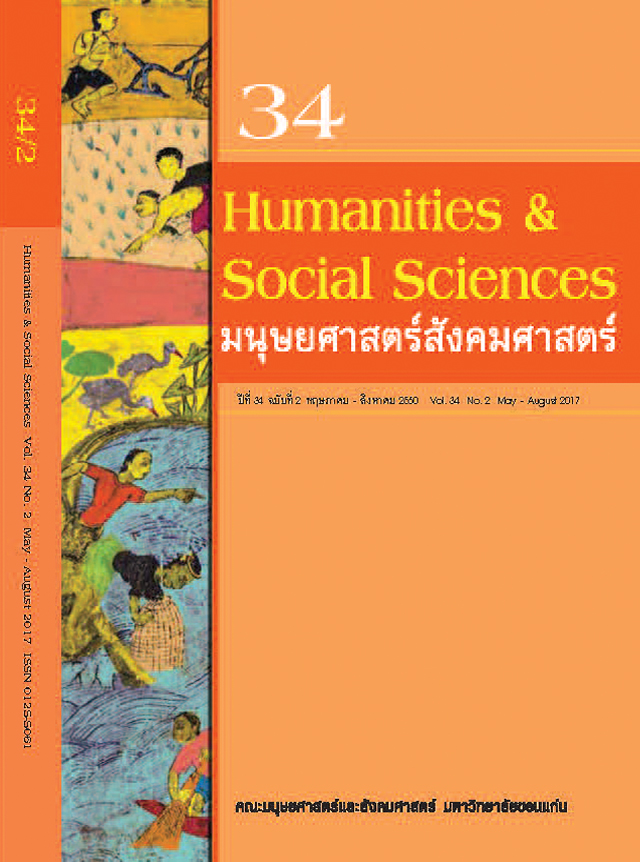จริยธรรมในการอยู่ร่วมกันและการจ้างงานแรงงานเพื่อนบ้านของผู้ประกอบการขนาดเล็ก-กลางในชุมชนริมแม่น้ำแม่กลอง; Ethics of living with and hiring migrant labours working for small to medium entrepreneurs in the community near the Meklong River
Keywords:
จริยธรรม, แรงงานเพื่อนบ้าน, ผู้ประกอบการ, ethics, migrant workers, entrepreneursAbstract
งานวิจัยชิ้นนี้มุ่งศึกษาจริยธรรมผู้ประกอบการในชุมชนริมแม่น้ำแม่กลองที่จ้างแรงงานเพื่อนบ้าน โดยพิจารณามิติการปฏิบัติตามกฎหมายการจ้างงานและข้อจำกัดในการปฏิบัติตามกฎหมายและแนวปฏิบัติที่ดีที่มีการเสนอโดยรัฐบาลไทยและองค์การระหว่างประเทศ การเก็บข้อมูลเชิงคุณภาพด้วยการสังเกตแบบมีส่วนร่วมและไม่มีส่วนร่วม และการสัมภาษณ์เชิงลึกผู้ประกอบการกิจการขนาดเล็ก-กลาง จำนวน 4 กิจการ ได้แก่ ผู้ประกอบการโรงงานถั่วงอก เต้าหู้ หัวผักกาดเค็มและวุ้นมะพร้าว และไร่อ้อย แสดงให้เห็นว่าการปฏิบัติหรือไม่ปฏิบัติตามกฎหมายของผู้ประกอบการมีปัจจัยและเงื่อนไขประกอบอื่น ๆ ไม่ว่าจะเป็นลักษณะของกิจการ พื้นที่การประกอบการ และปัจจัยเชิงโครงสร้างที่สนับสนุนให้เกิดการเคลื่อนย้ายแรงงานเข้าสู่ประเทศไทยที่มีลักษณะผสมผสานทั้งแรงงานที่มาแบบถูกกฎหมายและแรงงานที่ลักลอบเข้าเมือง เนื่องจากงานวิจัยนี้พิจารณาประเด็นจริยธรรมเป็นเรื่องการให้คุณค่า ดังนั้นการจะทำความเข้าใจเรื่องการปฏิบัติที่เป็นธรรมหรือมีจริยธรรมจึงควรพิจารณาเหตุผลและเจตนาที่ประกอบการกระทำต่าง ๆ ด้วย
Abstract
This research aims to investigate legal practices of the small-medium entrepreneurs living in the community near the Meklong River who hire migrant laborers. It addresses the entrepreneurs’ obligations to labor laws and their limitation to follow the law and best practices suggested by the Thai government and many international organizations. The research employs participant and non-participant observation and in-depth interviews with four small-medium entrepreneurs in the following business areas; bean sprouts factory, salty reddish and coconut jelly factory, tofu factory and sugarcane plantation. The findings reveal that economic interests determine entrepreneurs’ obligations to existing labor laws. However, there are other factors which need to be considered, such as, the type of businesses, geographical location and structural factors that facilitate movement of both legal and illegal migrant labors.



